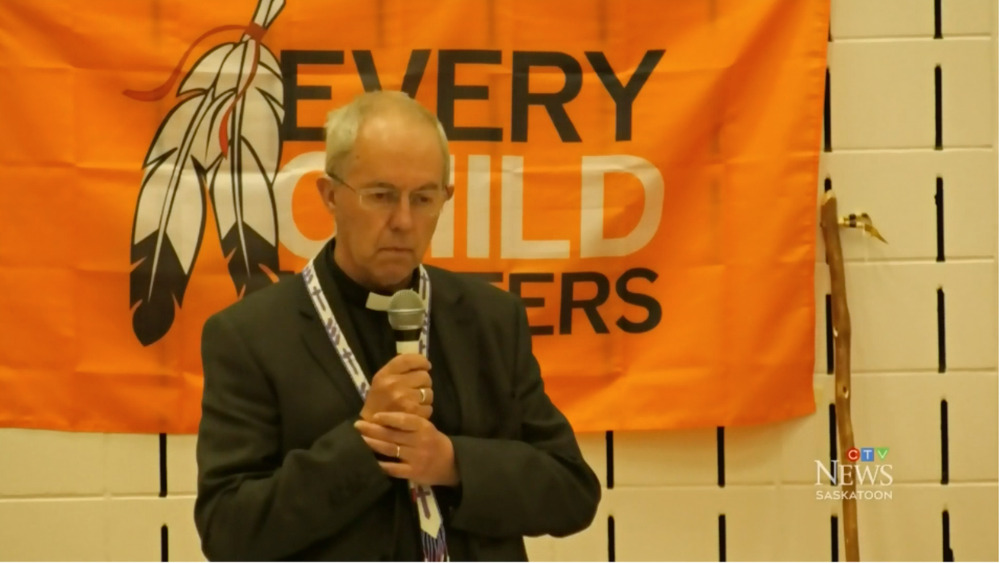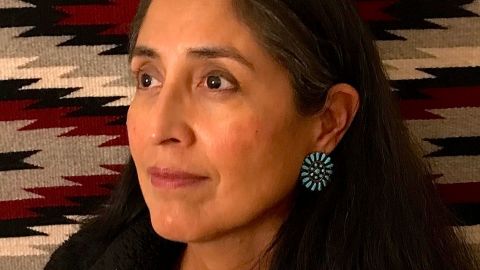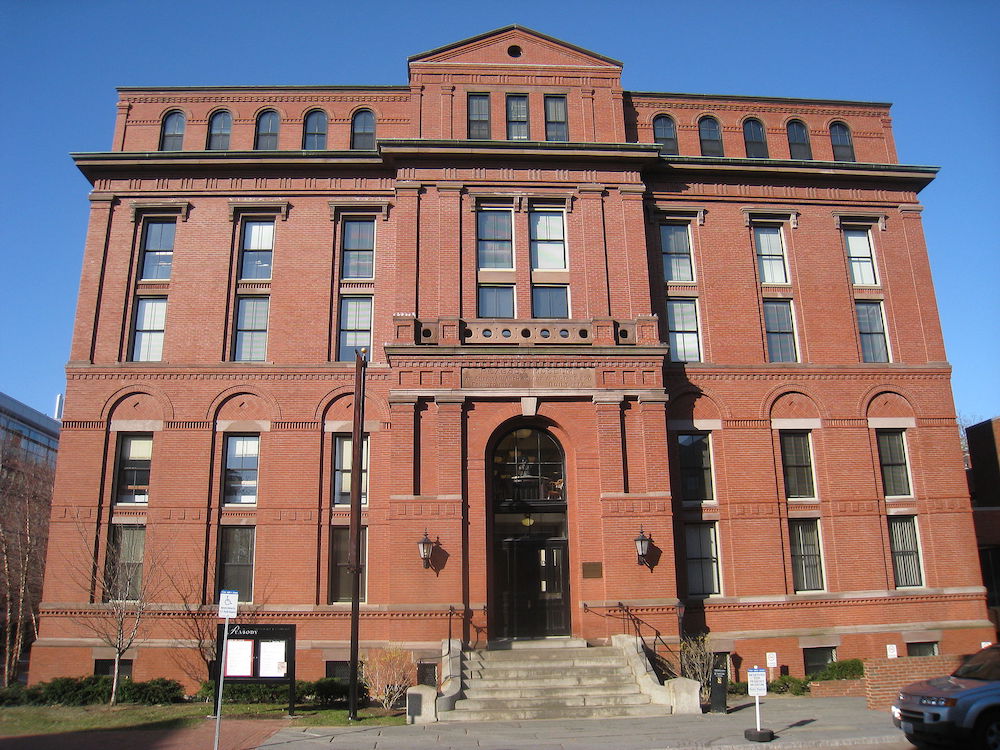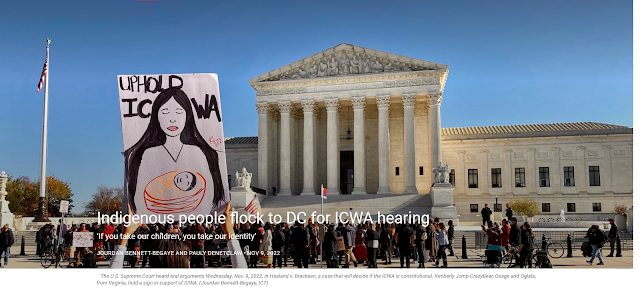NOVEMBER 5, 2022 THE HILL
Supreme Court’s ‘sleeper’ case is major clash over Native American adoptions
The Supreme Court heard a dispute over a
longstanding federal law that gives preference to Native American
families and tribes over non-Native couples when deciding where to place
Native children in custody proceedings.
Although overshadowed by the court’s more politically charged cases,
legal experts say the dispute could prove hugely consequential for
Native American rights and tribal sovereignty.
“It is a sleeper case,” said Mary Kathryn Nagle, a Native rights attorney who filed an amicus brief in the case. “For Indian country, it is maybe one of the most important cases that has ever gone before the Supreme Court.”
The dispute tees up questions about whether the Indian Child Welfare
Act (ICWA) unlawfully imposes race-based preferences when placing Native
children, and if the law amounts to excessive federal overreach into
state adoption policy.
The case plays out against the uniquely troubling history of
mistreatment suffered by the country’s Indigenous population, including
the once-common practice of separating Native American children from
their families and tribes, which the ICWA was designed to combat.
The Supreme Court looked very different when it last confronted a major ICWA question in
2013 and counted the late Justices Antonin Scalia and Ruth Bader
Ginsburg among its members. Although the court now has a solid 6-3
conservative majority, some court watchers believe the current ICWA case
could produce a split among the court’s conservatives.
The complex dispute to be heard Wednesday began when three white
couples who sought to adopt Indian children sued the federal government
over ICWA. Later, additional plaintiffs including the state of Texas
joined the case, and several Indian tribes intervened to support ICWA.
Texas and the other challengers claim, among other things, that the
law’s provision giving preference to Native American adoptive parents
over non-Native parents violates the Equal Protection Clause of the 14th
Amendment.
“A classic example of so-called ‘benign’ discrimination, ICWA creates
a government-imposed and government-funded discriminatory regime
sorting children, their biological parents, and potential non-Indian
adoptive parents based on race and ancestry,” Texas wrote in court
papers.
“Because this Court has recognized that ‘the way to stop
discrimination on the basis of race is to stop discriminating on the
basis of race,’ such methods violate equal protection.”
ICWA’s passage arose in response to the frequent separation of Native
children from their families and communities by state child welfare and
private adoption agencies.
According to research conducted around the time
of ICWA’s passage in 1978, around 25 to 35 percent of all Native
children were removed from their families and placed either into foster
homes or with adoptive families or other institutions. Among Indian
children in foster care, roughly 85 percent were in non-Native homes,
according to a 1969 survey of 16 states.
“This law was passed against a very disturbing and tragic history of
the wholesale removal of Indian children from families to assimilate
them into white culture based on prejudice about Indian culture,” said
frequent Supreme Court litigator Lisa Blatt at a recent legal forum.
Blatt argued the 2013 ICWA case on behalf of a non-Native adoptive
couple.
“It started with the Bureau of Indian Affairs putting all these kids
in horrendous boarding schools, and then it then transitioned to the
‘60s and ‘70s to state custody removal proceedings,” said Blatt, a
partner at the law firm Williams & Connolly.
In practice, ICWA requires that Indian children be placed with
members of their extended family or tribe, or other Native American
families before outside candidates may be considered.
Ben Kappelman, a partner at the law firm Dorsey & Whitney who has
provided pro bono services to a Minnesota Indian tribe in child welfare
proceedings, touted the law as a success.
“ICWA, considered the gold standard in child welfare policy,
establishes priority for caregivers of Native American children whose
parents cannot care for them,” he said.
Supporters of the law say the ugly history that led up to its
enactment underscores the enduring need for protections for Indian
children and families’ culture.
“ICWA is based on a simple idea: When Indian children can stay with
their families and communities, Tribes and children alike are better
off,” the tribes wrote in court papers. “By implementing that simple
idea, ICWA ‘promotes the stability and security of Indian tribes and
families’ and ‘protects the best interests of Indian children.’”
The Justice Department, on behalf of the Biden administration, is arguing in support of ICWA.
The case has the potential to create a split among the court’s
conservatives, some experts say. Blatt, of the firm Williams &
Connolly, noted that Justice Neil Gorsuch, a Trump appointee, has
“consistently ruled” in favor of tribal rights and law.
“I think the assumption is that the United States that’s defending
the law with the support of the tribes, has at least four votes,
assuming they have Gorsuch’s vote,” she said. “And that leaves the
challengers needing to pick up both Justice [Brett] Kavanaugh and
Justice [Amy Coney] Barrett.”
A decision in the cases, Haaland v. Brackeen, is expected by summer 2023.
👇👇👇
When You Take Away the Kids, You Take Away the Future
The case that seeks to strike down the Indian Child Welfare Act is about colonialism, not civil rights.
LISTEN:











%20on%20Twitter.png)









